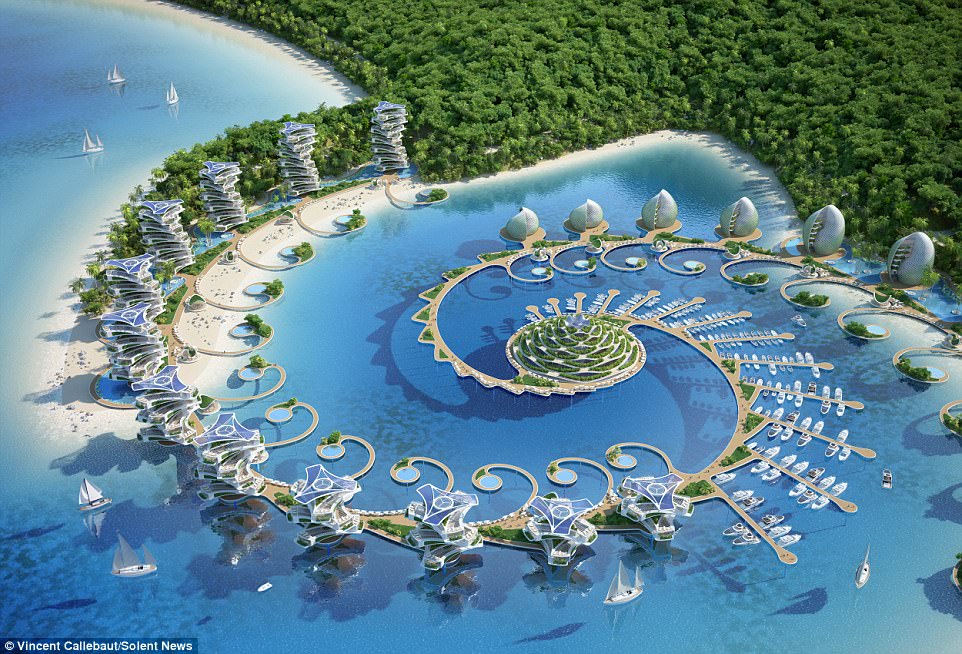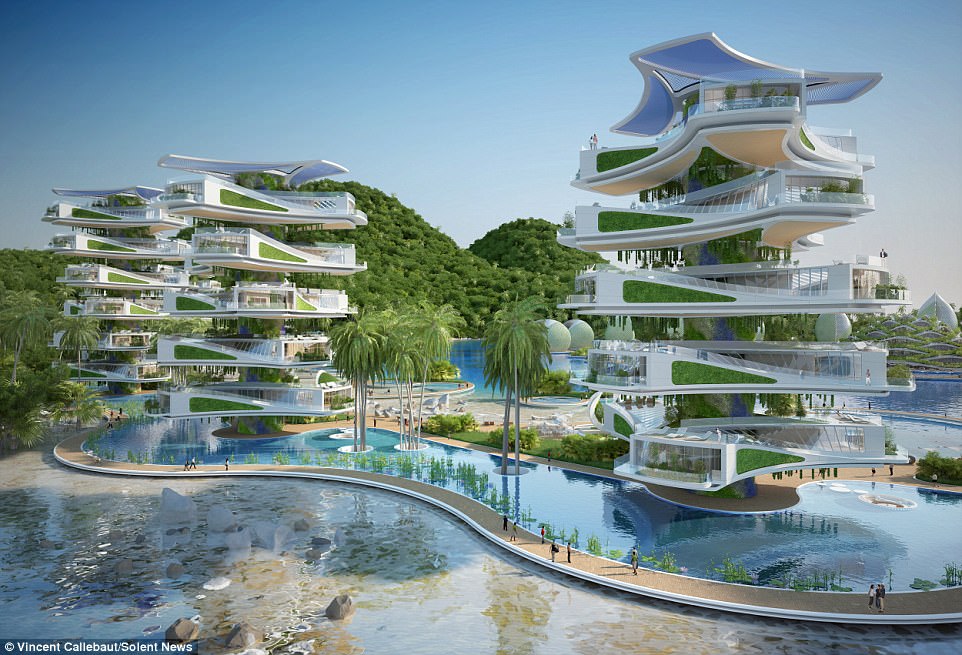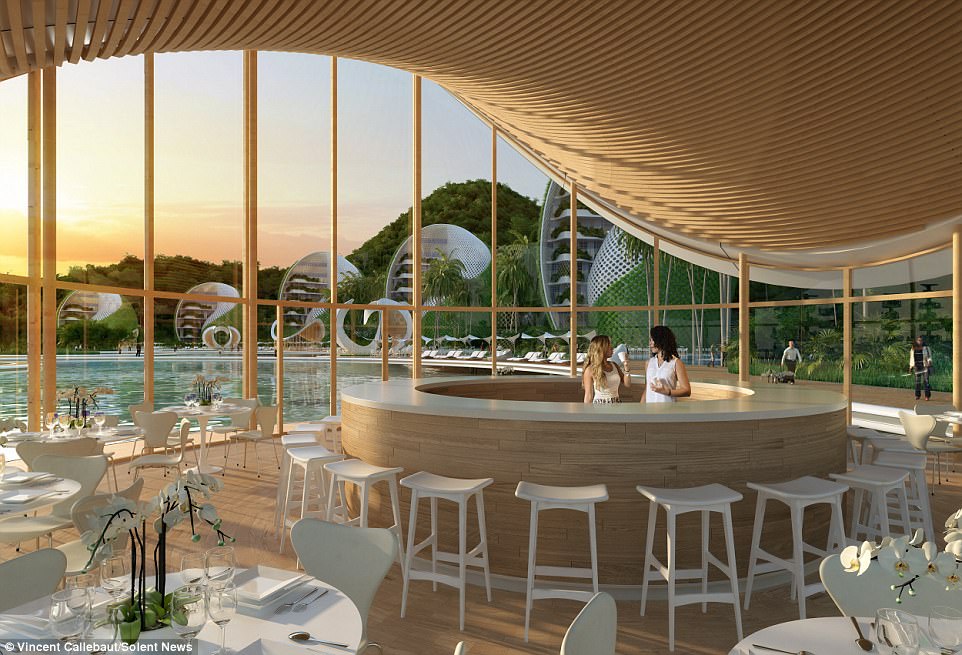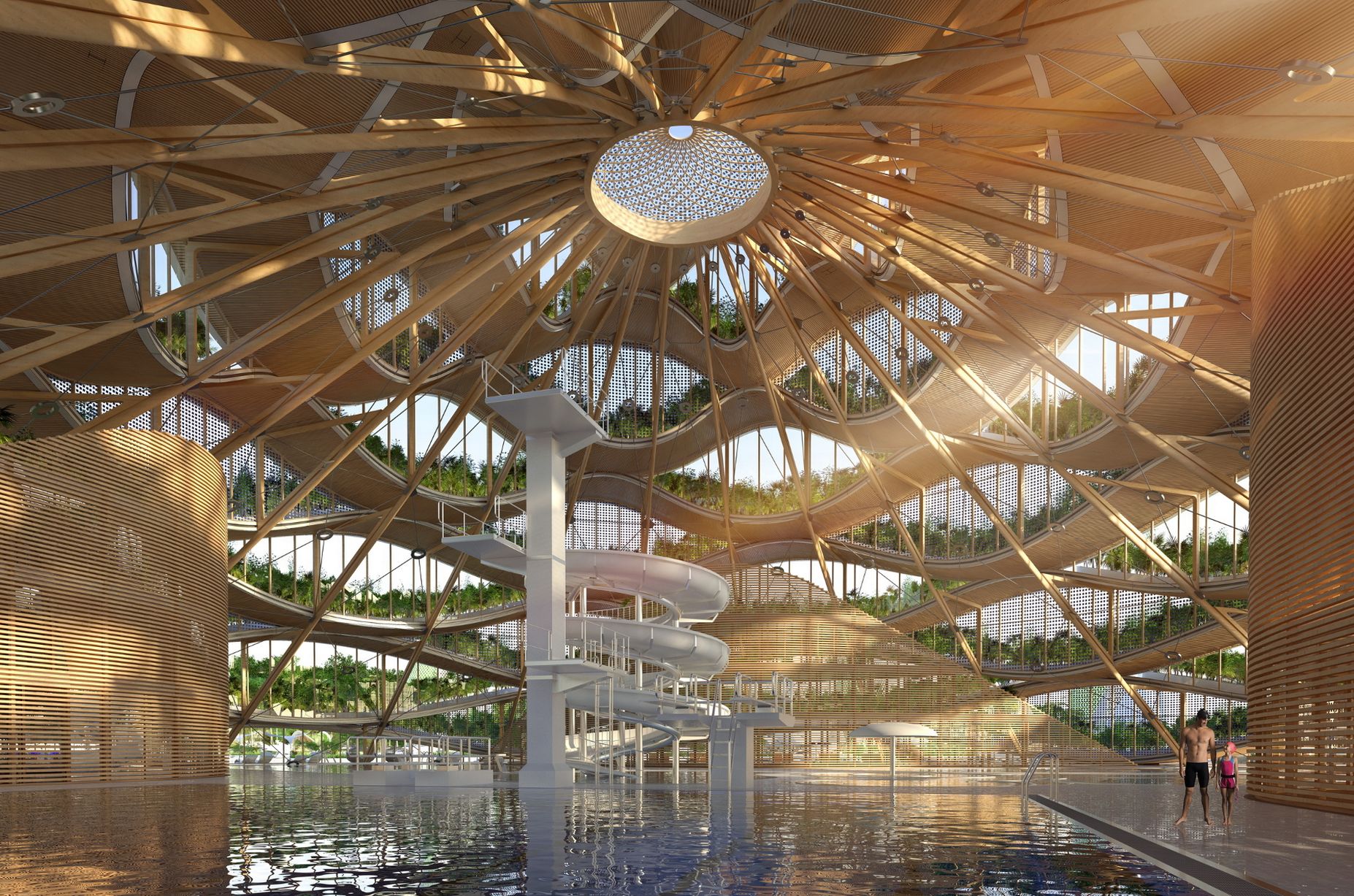
An architect has unveiled plans for a spectacular eco-resort in Palawan with shell-shaped hotels and rotating apartment towers.
The layout of the Nautilus Eco-Resort follows the ‘Fibonacci sequence’, a mathematical formula employed by architects as a ‘golden ratio’ to create pleasing dimensions. It is also the formula that governs the formation of natural objects, such as shells.
A total of 12 spiral towers of varying heights would host tourists in apartments. These towers would rotate to follow the sun, a full 360-degrees a day.

Nearby, a dozen sea snail-shaped buildings would include exhibition spaces on the ground floor that explain environmental issues, with hotel spaces above.
Multiple small pavilions would be scattered around the resort and at its centre there would be a large multi-purpose timber building shaped like a mountain.
Its roof would be covered with vegetable gardens and organic orchards, while the interior would include a sports pool and seawater leisure pool, scientific laboratories, an elementary school, a children’s home and a sports hall for local youth.
The resort would be built from reused or recycled materials and cater for more than 500 guests.

Architect Vincent Callebaut said his plans would help preserve Palawan’s environment. He added that guests would have to either sail there or use electric boats.
Resort with a purpose
The Frenchman said he was inspired by fears that the islands in the Western Pacific were under threat from pollution, mass tourism, over-fishing and climate change.
As part of this campaigning vision, paying guests at the resort would be expected to help collect rubbish and work alongside environmental scientists.
Paris-based Mr Callebaut said: “Our new project, the Nautilus Eco-Resort, is a pioneering, eco-tourism complex.

“It has been designed to unite the knowledge of the scientific community with the willingness of eco-tourists to optimise the revitalisation and protection of a degraded ecosystem such as in the Philippines.
“By minimising its ecological footprint, the experience is centred on the preservation of nature and local urban ecology while respecting endemic ecosystems and agro-ecosystems.
“This ‘zero-emission, zero-waste, zero-poverty’ project will be built from reused and recycled materials from the archipelago.
“This collaborative concept offers responsible eco-tourism based on education and interpretation in a natural environment, where the resources and well-being of local populations are to be preserved and gradually restored.”

Comments are closed.